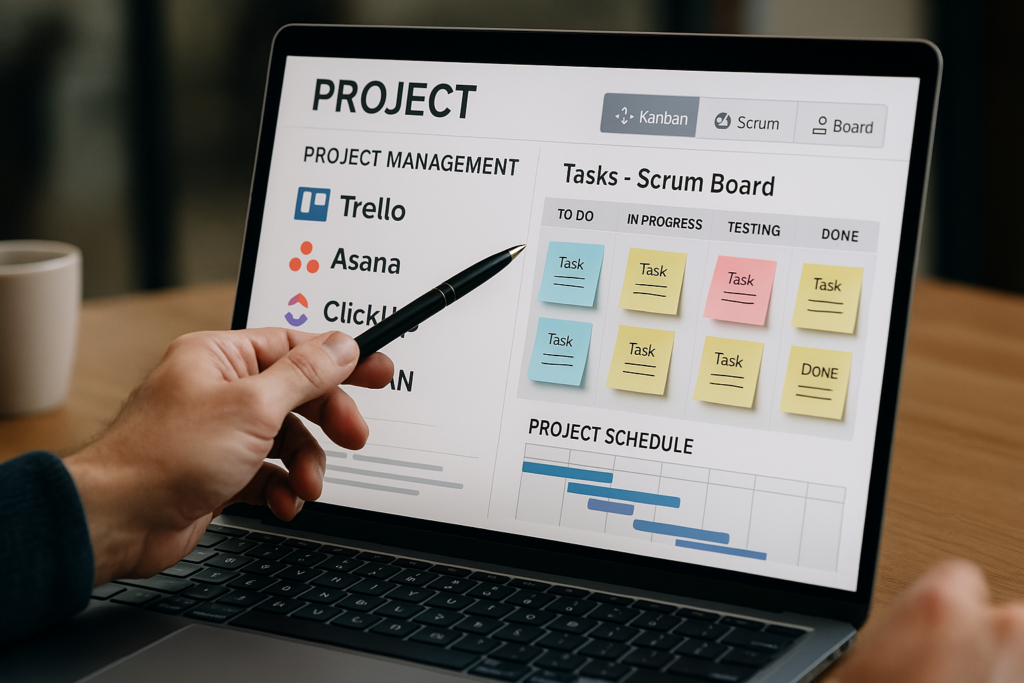Table of Contents
Your career deserves more than vibes and Wi-Fi!
The digital landscape is evolving rapidly, as are expectations in today’s workplace. Whether you’re in marketing, tech, operations, or design, having the digital skills you need to future-proof your career is no longer optional; it’s mandatory!
One day, you’re the office whiz with killer spreadsheets, and the next day, someone’s automating half of your workflow with AI and asking if you “speak data.”
By 2025, around 85 million jobs may be displaced by a shift in labor between humans and machines, but 97 million new roles could emerge that are better suited to this new dynamic (source: World Economic Forum)
If this made you sweat a little, don’t worry. You’re not alone. We all are part of this collective fear. The good news? There are plenty of digital skills you need to future-proof your career, and they’re totally learnable (no Matrix plug-in required).
Let’s explore what are the most valuable digital skills to learn in 2025 and how they can help people like you and me to build a sustainable, impactful career in the digital-first workplace.
1. Data Fluency: Turning Information Into Strategic Action

Nope, you don’t need to become a data scientist. But you do need to understand what the heck all those charts and dashboards mean.
📊 76% of executives want more employees who know their way around data PwC. Why? Because data = decisions. And decisions = power moves.
Start by learning how to read trends, ask thoughtful questions, and tell stories with numbers (bonus points if you can turn that into a killer deck).
2. AI for Workflow Automation: Your Competitive Edge

The conversation about AI has shifted from “Will it replace me?” to “How can I use it to work smarter?” That’s where AI for workflow automation comes in.
📊 Up to 50% of current work activities across industries could be automated using existing technology (source: McKinsey).
Automation tools like Notion AI, Zapier, and Make.com allow non-tech professionals to create systems that handle repetitive tasks, giving you more time for strategic thinking and innovation.
3. Strategic Thinking and Innovation: Human Intelligence at Its Best

As machines take over routine tasks, what remains uniquely human is strategic thinking and innovation. These skills turn challenges into opportunities and tools into transformation.
- The smart folks at Deloitte say problem-solving and cognitive flexibility are chef’s kiss essential for the future of work.
Being able to align business goals with digital solutions isn’t just a leadership skill it’s a survival skill in 2025.
4. Remote Leadership: Managing Culture Across Screens

In an age of hybrid and remote teams, leadership is less about visibility and more about impactful communication, empathy, and outcome-driven coaching.
- Leaders who communicate expectations can increase team engagement by up to 32%, even when working remotely (source: Gallup).
Learning how to lead asynchronous meetings, motivate distributed teams, and foster belonging without physical proximity is crucial.
5. Remote Project Management: Delivering Results Anywhere

If you’ve ever juggled tasks across five time zones while waiting for approval in a Slack thread…You already know the chaos. Welcome to remote project management.
But here’s the deal: the chaos can be managed. Project managers with Agile certification earn 22% more (source: PMI). That’s a raise and a sanity boost.
Being familiar with tools like Trello, Asana, or ClickUp, and frameworks like Scrum or Kanban helps keep projects aligned and outcomes focused.
6. Digital Communication and Collaboration: Beyond Emails and Zoom

Clear, compelling communication is the glue of any successful digital team. But now, that communication must travel through Slack threads, Miro boards, Loom recordings, and async videos.
Digital communication and collaboration are no longer just soft skills, they’re productivity enablers.
We need to learn to:
- Adapt your tone across platforms.
- Know when to use video vs. chat.
- Provide context in async updates.
These nuances build trust, reduce friction, and get things done in a decentralized workplace.
7. Digital Strategy and Innovation: Big Picture Thinking

We all know that being “good with tools” is nice. But being the one who knows why you’re using them and how they connect to business goals? That’s next level, and we certainly need to reach it!
As per BCG, digitally mature companies are 26% more profitable than the rest. And guess who helps them stay that way? People who know how to link ideas, tools, and execution.
About time we need to start thinking like strategists, even if it’s not in our title (yet).
Final Thoughts:
The truth is, you don’t need to learn everything overnight. But if you want to stay relevant, keep earning, and maybe even enjoy what you do, you’ve gotta keep growing.
Pick one or two of these digital skills (start with what excites you), carve out 30 minutes a week, and go. You don’t need to be perfect, you just need to be learning.
Because in the digital future, the winners won’t be the ones with the fanciest job titles. They’ll be the ones who never stopped adapting.
Take one step at a time, I know it can get overwhelming, but hang in there. Remember, we all are a part of this never-ending evolving system 😊
Subscribe to WhatWorksNext today and join a community dedicated to transforming the way we work. Working smarter starts here!
More Insightful Blogs:
- High-Paying Remote Careers in 2025: The Best Jobs for Future Success
- Best Productivity Apps for Remote Workers
- How to Avoid Procrastination While Working from Home: A Practical Guide for Effective Work Management

